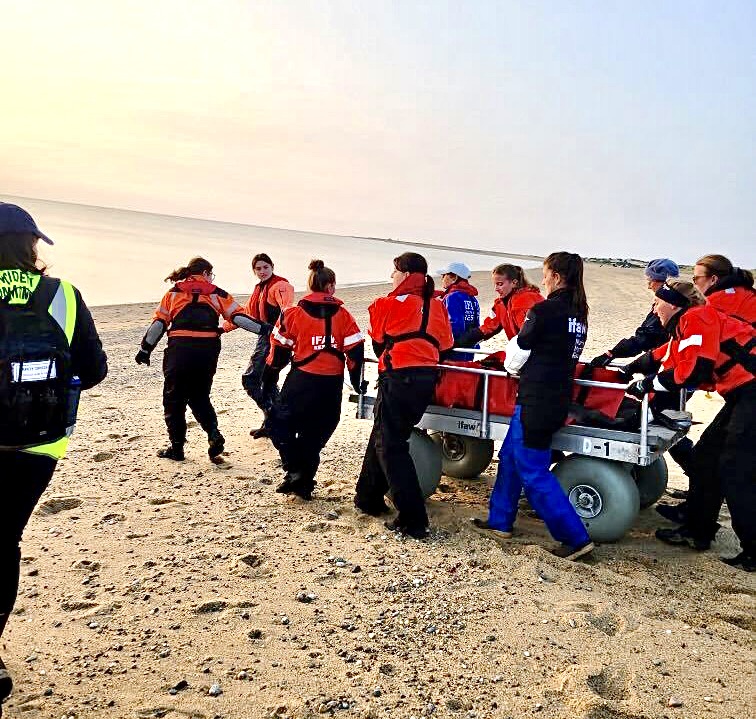IFAW’s Marine Mammal Rescue Team Saves & Re-releases Two Dolphins Off Cape Cod, Massachusetts
Photos by: IFAW
An all-day effort to guide two common dolphins back to deeper waters to avoid a stranding has ended in success with both dolphins rescued and released safely off Provincetown, Massachusetts.
Animal rescue experts with IFAW first received reports at about 9:00 AM Thursday morning, indicating that several dolphins were swimming near the mouth of the Herring River in Wellfleet. IFAW staff and volunteers responded quickly to assess the dolphins’ location and behavior.
“Volunteers remained on scene throughout the morning before sighting two dolphins in ‘the gut’ of the river, an area well-known for its shallow, difficult-to-navigate mud flats,” said Lauren Cooley, Animal Rescue Responder and Stranding Biologist with IFAW. “With an 11:00 AM high tide on our side, we mobilized to herd the dolphins back out to deeper water.”

The IFAW team utilized three vessels in a careful herding attempt, including IFAW’s own 15-foot inflatable Zodiac, as well as the support of two vessels and crew from the Wellfleet Harbormaster.
Herding attempts were unsuccessful. Nearing 4:00 PM, IFAW experts switched tactics and the decision was made to extract the two dolphins along Chequesset Neck Road. This is the precise moment IFAW’s one-of-a-kind mobile dolphin rescue vehicle was made for—allowing the team to transport the dolphins safely.
“It was a long, tiring day for these dolphins, and with the tide going out, we knew their greatest chance for survival was to transport them to deeper waters,” said Cooley. “With our mobile capabilities, we were able to give the dolphins a full physical exam, treatment, and supportive care to counter the effects of being trapped in shallow water. The deeper waters off Provincetown will be key to their success back in the wild.”
The dolphins were transported to a release site at Herring Cove Beach in Provincetown at sunset. Conditions were optimal and IFAW will monitor their movements via a temporary satellite tag in the coming days.
